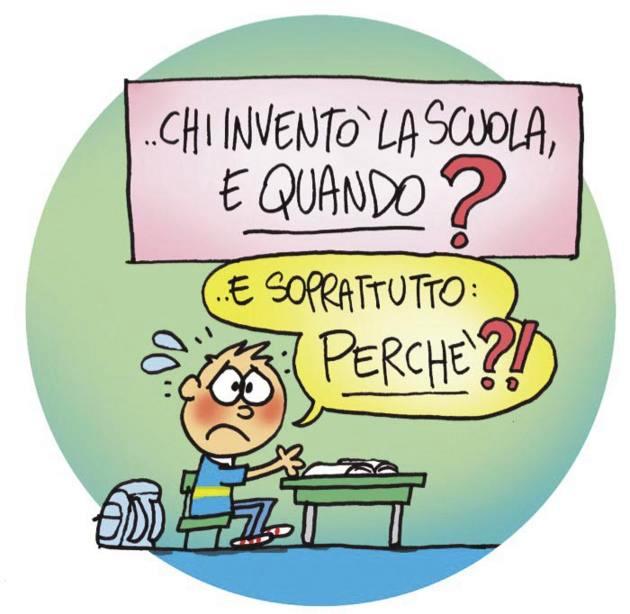I Must Study Italian Posted by Serena on May 2, 2016 in Grammar
Devo studiare l’italiano (I must study Italian), is something that we hear a lot from you, dear readers. We sympathise, trying to learn a foreign language when you don’t live in situ is really tough! We’re also aware that we do quite a lot of high level grammar articles, such as the compound constructions that we focussed on last week.
Perhaps it’s time to take a few steps back and study some fundamental verb conjugations. This will be the first in a series of articles covering the three very important verbi modali (modal verbs): dovere (to have to), volere (to want) and potere (to be able).
Let’s begin with the irregular verb dovere. We’ll examine its basic conjugations and its usage in everyday speech:
Indicativo Presente (present indicative):
io devo, tu devi, lui/lei deve, noi dobbiamo, voi dovete, loro devono
Examples:
oggi devo fare la spesa = today I must/have to do the shopping
Lucia deve studiare per l’esame = Lucia must/has to study for her test
purtroppo Mario e Lucia devono andare via presto = unfortunately Mario and Lucia must/have to leave early
Indicativo Imperfetto (imperfect indicative):
io dovevo, tu dovevi, lui/lei doveva, noi dovevamo, voi dovevate, loro dovevano
Examples:
non sono venuta perché dovevo scrivere un articolo = I didn’t come because I had to write an article
purtroppo Mario e Lucia dovevano andare via presto = unfortunately Mario and Lucia had to leave early
quando eravamo bambini dovevamo tornare a casa prima che facesse buio = when we were children we had to get back home before dark
To find out more about the imperfect indicative see this post: Indicativo Imperfetto
Indicativo Futuro (future indicative):
io dovrò, tu dovrai, lui/lei dovrà, noi dovremo, voi dovrete, loro dovranno
Examples:
se vuoi passare l’esame dovrai studiare di più = you’ll have to study more if you want to pass your exam
per andare a Bologna dovrete cambiare treno a Prato = to get to Bologna you’ll have to change train in Prato
Mario e Lucia dovranno alzarsi presto per essere all’aeroporto in tempo = Mario and Lucia will have to get up early to be at the airport on time
To find out more about the future indicative see this post: Indicativo Futuro
Condizionale Presente (present conditional):
io dovrei, tu dovresti, lui/lei dovrebbe, noi dovremmo, voi dovreste, loro dovrebbero
Examples:
oggi dovrei fare la spesa = I should do the shopping today
se vuole passare l’esame Lucia dovrebbe studiare di più = Lucia ought to/should study more if she wants to pass her test
dovremmo tornare a casa prima che faccia buio = we ought to/should get back home before dark
To find out more about the present conditional see this post: Condizionale Presente
Congiuntivo Presente (present subjunctive):
io debba, tu debba, lui/lei debba, noi dobbiamo, voi dobbiate, loro debbano
Examples:
penso che tu debba chiederle scusa = I think you ought to/should apologize to her
credo che Lucia debba studiare di più = I believe Lucia ought to/should study more
non c’è ragione per cui dobbiate partire così presto = there’s no reason why you should leave so early
To find out more about the present subjunctive see this post: Congiuntivo Presente
Congiuntivo Imperfetto (imperfect subjunctive):
io dovessi, tu dovessi, lui/lei dovesse, noi dovessimo, voi doveste, loro dovessero
Examples:
pensavo che tu dovessi finire di scrivere l’articolo = I thought you had to finish writing the article
credevo che Mario dovesse restare a Bologna per due giorni = I believed that Mario had to stay in Bologna for two days
se per caso dovessimo andare a Firenze potremmo fare una tappa a Siena = if by chance we had to go to Florence we could stop off in Siena
To find out more about the imperfect subjunctive see this post: Congiuntivo Imperfetto
Next time I’ll be looking at the conjugation and use of dovere when used with the auxiliary verbs essere (to be) and avere (to have).
A presto!

Build vocabulary, practice pronunciation, and more with Transparent Language Online. Available anytime, anywhere, on any device.





Comments:
David Morgan:
Thank you for this very useful grammar blog. It seems that you can do so much with modal verbs so I am looking forward to the forthcoming series. No doubt there will be a test at the end with a prize of a trip to your part of lovely Italy, lol.
Phil:
That’s right, David. It’s the “no expenses paid” vacation with a free ticket sold at the door for a language lesson if you can find Geoff and Serena in Pontremoli.
Maria:
Thank you for this article! All the verb forms and when you use them does sound daunting, though…
Rita Kostopoulos:
MAGNIFICO RIPASSO DI VERBI
Grazie mille.
Rita